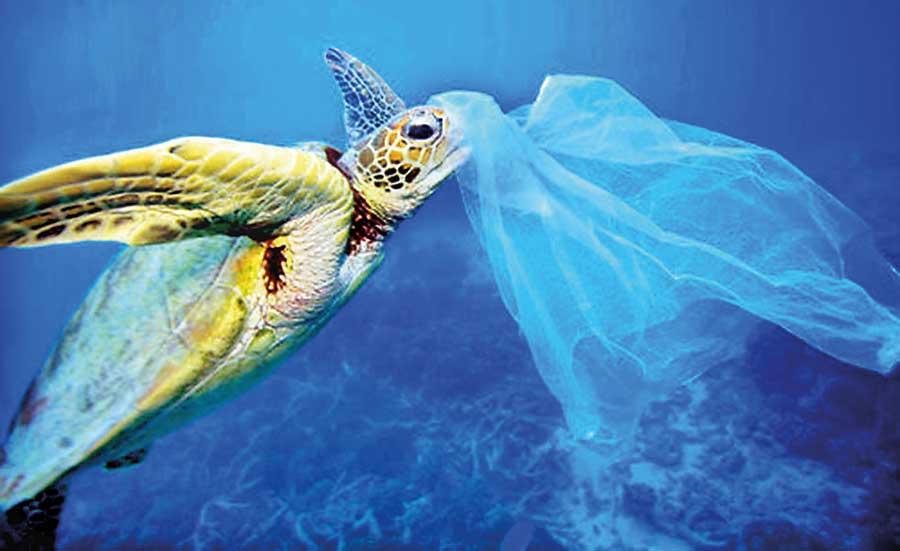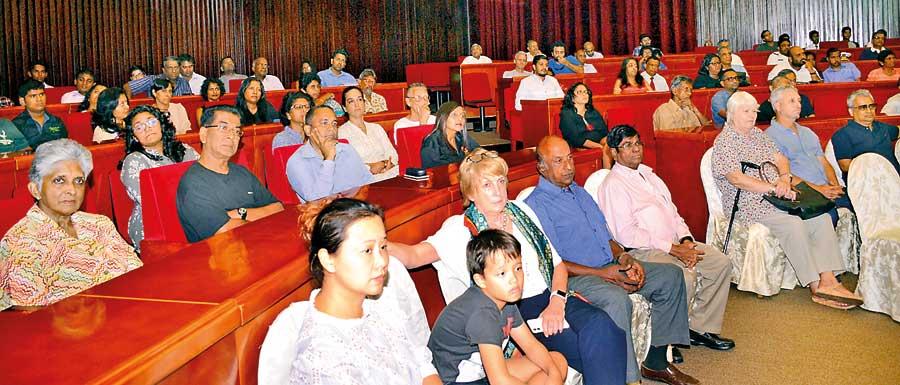Reply To:
Name - Reply Comment

- There is a great need to engage in public advocacy and change public perception towards marine conservation issues
- We are impacting wildlife in ways that we can’t even understand
- We have altered the natural landscape
Like other ecosystems found on land, marine ecosystems are also equally important as they comprise a large portion of sea animals, plants and corals. Being an island, Sri Lanka boasts of its rich biodiversity in marine ecosystems, which has attracted many tourists from around the world. Unfortunately, this richness in marine life has been threatened by overfishing, pollution, coastal development and climate change. As a result, ‘Marine conservation’ has become a hashtag; we hear and see on a day-to-day basis. In this context, Wildlife and Nature Protection Society (WBPS) in Sri Lanka held its monthly lecture under the theme of “Prioritising marine conservation: Facts vs fuzz”.

The lecture was delivered by prominent Sri Lankan marine biologist Nishan Perera whose core interests are mostly in coral reef ecology, fisheries and marine protected area management. His work extends to both local and international marine conservation platforms. He is also the co-founder of Blue Resources Trust, a Sri Lankan marine research and conservation organisation. Perera is also an underwater photographer and his work has featured in both local and international publications.
Perera noted at the very outset of the talk, the lecture was rather to create awareness and make people think what possible action could be taken regarding the issues in conserving marine ecosystems. He also pointed out that most of the time one tends to turn a blind eye to the persisting issues that require public attention and focus. He also insisted that there were illegal spearfishing and other types of illegal fishing activities still taking place in Colombo. As he elaborated the common problem encountered in handling such issues is the lack of resources. “We don’t have personnel to patrol and we can’t patrol and enforce the law,” he further added.
Perera remarked that the biggest challenge that marine conservation sector had been facing was the perception that human beings had towards marine species compared to the perception that they had towards slaughtering other domesticated animals such as goats or cows. Perera noted that one becomes uncomfortable seeing a head of a cow or goat or a chicken, but one does not feel the same repulsiveness and uneasiness regarding fish; even if they were killed in large quantities. According to him, it was the biggest challenge that the marine conservation sector was facing when highlighting the importance of conserving certain marine species.
Discussing why one should prioritise some conservation issues, Perera pointed out that primarily it was necessary to identify the limited resources to address an unlimited number of issues. He also stressed that it was necessary to use resources more effectively for most pressing marine conservation issues. Referring to the significance of conservation of particular species, he said “just because the media says or we feel empathy it isn’t always most significant. We have to look at that with data,” he said. Perera also stressed that it was necessary to look at conservation status in terms of how a particular species impacts the wider ecosystem or how threatened the
particular animal is.
According to Perera it is necessary to look at how successful the intervention would be in addressing the persisting issues. He also made it a point that most of the issues should be given attention not based on popularity or ones which get much public attention but rather the ones that are
scientifically based.
Perera highlighted that most of the marine conservation issues did not get much attention compared to other environmental issues on land. Identifying agricultural runoff as one of the major issues, Perera mentioned that due to poor agricultural practices prevalent in Sri Lanka there was an extensive amount of fertilizer and pesticides that eventually ended up in the ocean. He also explained the potential ways that this agricultural runoff could adversely impact marine ecosystems. “The pesticides are designed to kill, and they kill larvae and eggs of many animals,” he said. He also said that many nutrients added to the ocean could fuel the growth of certain plant species like Algae, while killing the seagrass systems that give rise to imbalances in the marine ecosystems.
Perera also identified deforestation in the hill country and poor land practices as issues that cause landslides and mudslides ultimately ending up in the ocean impacting the coastal ecosystems. Speaking about the oil spills that make a huge impact on oceans, Perera said, “Oil spills can have localized impacts because it is one time in one place”. However, he stressed that the amount of oil added to oceans from land-based runoff pollutes the oceans far more than a single oil spill as land-based runoff is more constant.
He also asserted that the amount of by-catch cetaceans and turtle were often disregarded and did not draw much attention of the public. He also identified climate change as another major issue that impacts marine ecosystems stressing that climate change is a vastly complex issue that is difficult to deal with. Highlighting unsustainable fisheries as the biggest issue in Sri Lanka that can be easily addressed compared to the other issues discussed, Perera said “We haven’t made major progress in terms of managing our fisheries.”
"Just because the media says or we feel empathy it isn’t always most significant. We have to look a that with data - Nishan Perera"
According to Perera, there is a great need to engage in public advocacy and change public perception towards marine conservation issues that really matter and make them the public concern. “We have altered the natural landscape. We are impacting wildlife in ways that we can’t even understand. It’s not a natural ecosystem any more,” he further added. As he stated engagement in public advocacy can influence the politicians towards changes in policies that can address the issues.
A Science-based approach to policy formulation and implementation that looks at an ecosystem approach is vital. He also stressed that it was necessary to conserve not only the charismatic animal that we connect to but also the wider ecosystems and animals that depend on it. “We can’t conserve animals in isolation,” he added. Perera also emphasised that the charismatic animals such as the whale, the shark, the Manta Rays that capture our attention can be used as flagships for marine conservation. Besides, he also highlighted the importance of the engagement of the local communities towards marine conservation.
Understanding how one could contribute to marine conservation efforts, it is important that we become more alert and attentive towards the persisting issues and be more responsible towards the environment.

Some of the participants at the public lecture